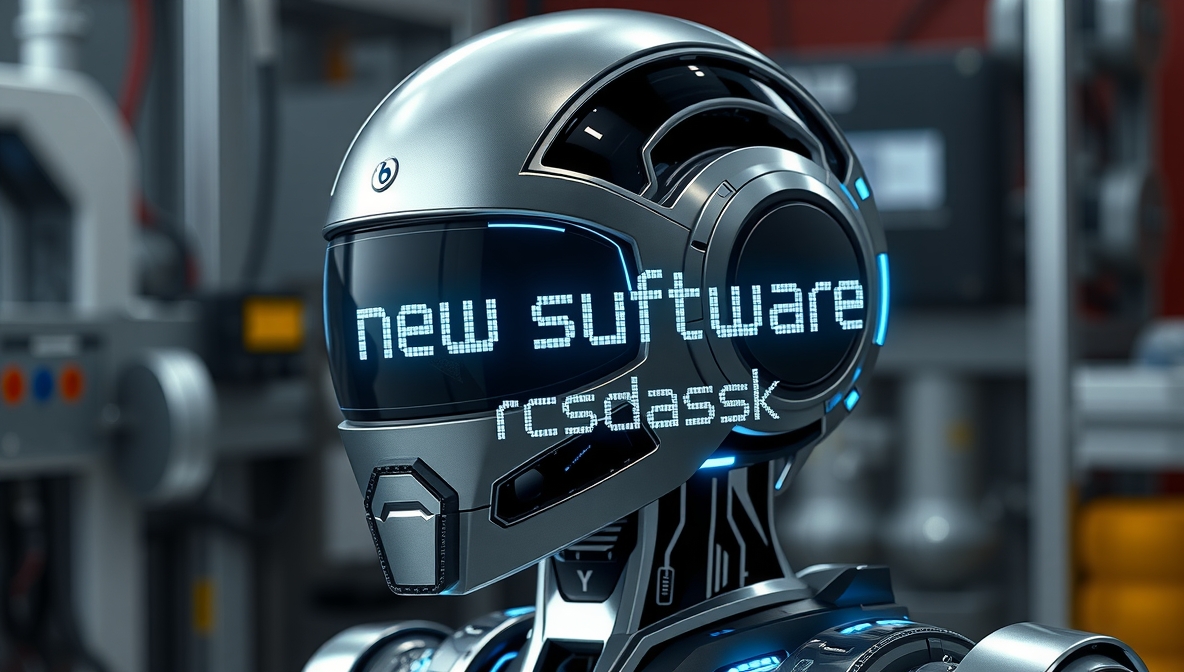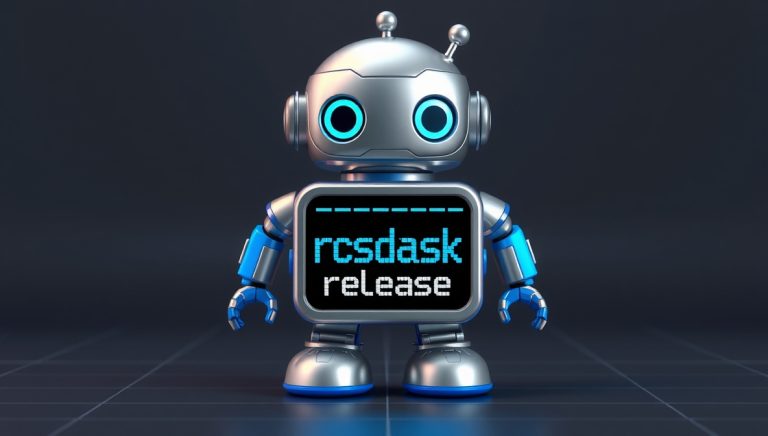New Software rcsdassk – Transforming Digital Workflows and Business Efficiency
In today’s fast-changing digital landscape, businesses and individuals constantly look for solutions that improve efficiency, productivity, and security. Among the many innovations that have been making waves, new software rcsdassk stands out as a tool that is shaping how organizations approach their workflows and technological strategies. This article explores the ways advanced digital solutions are revolutionizing industries, the role of automation, the importance of security, and the long-term potential of integrating such tools into everyday operations.
Digital Transformation as a Necessity
Over the last two decades, digital transformation has shifted from being optional to being absolutely necessary. Companies no longer see it as a way to get ahead but as a survival requirement in an increasingly competitive market. New software rcsdassk reflects this transformation by combining powerful features that align with the core needs of enterprises, from enhanced collaboration to streamlined operations. Organizations that once relied on outdated systems now find themselves forced to embrace new technology in order to remain relevant.
Evolution of Workflows in Different Sectors
Industries across the globe have adopted technology in diverse ways. In healthcare, digital platforms simplify patient management. In manufacturing, automation speeds up production without compromising quality. In finance, analytics provide data-driven insights. New software rcsdassk finds application across these domains because it offers flexibility that adapts to unique challenges. The ability to customize solutions depending on the sector makes it valuable for both large corporations and small enterprises.
The Role of Automation and AI
Artificial intelligence and automation are the twin engines driving much of the digital revolution. Businesses are increasingly seeking tools that can minimize human error, reduce repetitive tasks, and speed up decision-making. By embedding automation, new software rcsdassk reduces the burden on employees, allowing them to focus on creative and strategic work instead of monotonous processes. The use of AI-driven recommendations and predictive analysis further makes such software essential in modern workplaces.

Collaboration and Communication in the Modern Era
One of the most critical needs of the digital age is effective collaboration. Remote and hybrid work have become standard across the globe, demanding tools that ensure smooth communication. Teams require centralized platforms where information is accessible, secure, and easy to manage. New software rcsdassk supports these needs by offering integrated communication channels, document sharing, and real-time feedback options, ensuring teams remain connected regardless of geographical barriers.
Security as a Top Priority
While digital transformation offers immense benefits, it also brings challenges, particularly in cybersecurity. With sensitive data constantly being transferred online, the need for secure systems has never been higher. Hackers continue to evolve their methods, targeting vulnerabilities in both large and small organizations. New software rcsdassk addresses this issue by integrating advanced security features such as end-to-end encryption, multi-factor authentication, and automatic threat detection, which protect both data and user privacy.
Impact on Small and Medium-Sized Enterprises
Small and medium-sized businesses are often more vulnerable when adopting digital tools because of limited resources. They require cost-effective solutions that do not compromise quality. New software rcsdassk is designed with scalability in mind, ensuring that smaller enterprises can access the same advanced features as large corporations without exceeding their budgets. This democratization of technology levels the playing field and empowers businesses of all sizes to compete in global markets. error rcsdassk
Global Adoption and Regional Differences
The adoption of advanced digital tools varies across regions. In the United States, for example, organizations are often early adopters, embracing innovations to gain a competitive edge. In other regions, infrastructure limitations or budget constraints may slow down adoption. New software rcsdassk has managed to bridge some of these gaps by offering cloud-based solutions that eliminate the need for expensive hardware and reduce implementation complexity. This makes it appealing to both developed and emerging markets.
Integration with Existing Systems
One of the biggest challenges organizations face when adopting new technologies is integration with existing systems. Many companies already have complex IT infrastructures, and adding new tools can create compatibility issues. New software rcsdassk solves this by offering flexible integration features, APIs, and support for legacy systems. This ensures businesses can gradually transition without experiencing disruptions in their daily operations.
The Long-Term Benefits of Innovation
The adoption of modern technology is not just about solving immediate challenges—it’s about preparing for the future. Organizations that invest in advanced solutions today position themselves to adapt more easily to the demands of tomorrow. New software rcsdassk offers long-term value through continuous updates, adaptive learning features, and user-driven improvements that keep it relevant in rapidly changing industries. Businesses that embrace this mindset are more likely to remain resilient against uncertainties.
Training and User Adoption Challenges
No matter how powerful a tool may be, its true value is realized only when people know how to use it effectively. Training remains a crucial part of digital adoption. Employees often resist change when they feel overwhelmed by new systems. New software rcsdassk addresses this challenge with user-friendly interfaces, step-by-step onboarding, and accessible training materials. By reducing the learning curve, it encourages wider acceptance and boosts productivity faster.
Sustainability and Eco-Friendly Practices
Technology adoption is not just about efficiency; it’s also about responsibility. Companies are under growing pressure to align with eco-friendly practices and reduce their carbon footprint. Digital tools contribute to sustainability by minimizing paper use, reducing travel needs through remote collaboration, and optimizing resource management. New software rcsdassk supports this goal by enabling businesses to conduct more of their operations online, cutting down on wasteful processes and supporting green initiatives.
Customer Experience and Market Competitiveness
In today’s marketplace, customer experience often determines success or failure. Businesses must find ways to deliver faster, more personalized, and reliable services. Digital platforms enable organizations to track customer behavior, gather insights, and respond quickly to needs. New software rcsdassk enhances customer-facing operations by offering tools for feedback collection, automated support, and real-time engagement, ensuring companies remain competitive and customer-centric.
Case Studies of Successful Implementation
Across industries, several organizations have reported notable success after adopting advanced digital platforms. For instance, healthcare providers have improved patient management, while educational institutions have expanded online learning opportunities. Manufacturers have reduced downtime with predictive maintenance tools. New software rcsdassk has featured in these transformations, often cited for its adaptability, user-friendly nature, and ability to integrate seamlessly into existing workflows.
The Future of Digital Innovation
The pace of technological change shows no sign of slowing down. Emerging trends like quantum computing, blockchain, and extended reality will reshape industries further. Businesses that remain flexible and proactive will be best positioned to capitalize on these changes. New software rcsdassk is likely to evolve alongside these trends, offering features that connect with next-generation technologies and ensuring organizations remain future-ready.

Conclusion
The journey toward digital excellence is ongoing, requiring constant adaptation and innovation. From automation and security to sustainability and customer engagement, advanced tools are at the core of modern progress. New software rcsdassk stands as a prime example of how powerful, flexible, and secure digital platforms can reshape industries and empower businesses of all sizes. Organizations that embrace such solutions today not only gain immediate benefits but also ensure long-term resilience in an unpredictable future.
Frequently Asked Questions (FAQs)
Q1. Why is digital transformation so important for modern businesses?
Digital transformation is essential because it helps businesses stay competitive in fast-changing markets. It improves efficiency, reduces operational costs, enhances customer experience, and enables companies to respond quickly to industry shifts. Without adopting digital tools, businesses risk falling behind their competitors.
Q2. How does automation improve workplace productivity?
Automation reduces the burden of repetitive and time-consuming tasks, allowing employees to focus on higher-value work such as problem-solving, creativity, and strategy. It also minimizes errors, speeds up processes, and improves consistency, which collectively raise overall workplace productivity.
Q3. What role does cybersecurity play in adopting new technologies?
Cybersecurity is critical because organizations are increasingly vulnerable to digital threats. As more data is stored and transmitted online, the risks of breaches, theft, and unauthorized access grow. Strong cybersecurity measures, such as encryption and multi-factor authentication, ensure that sensitive information remains secure.






